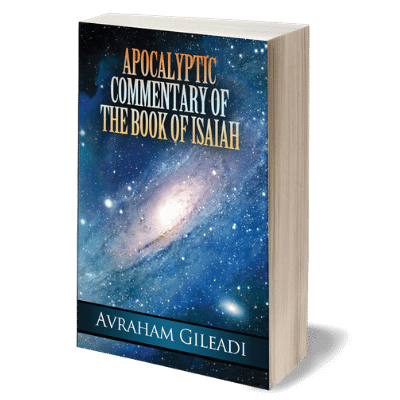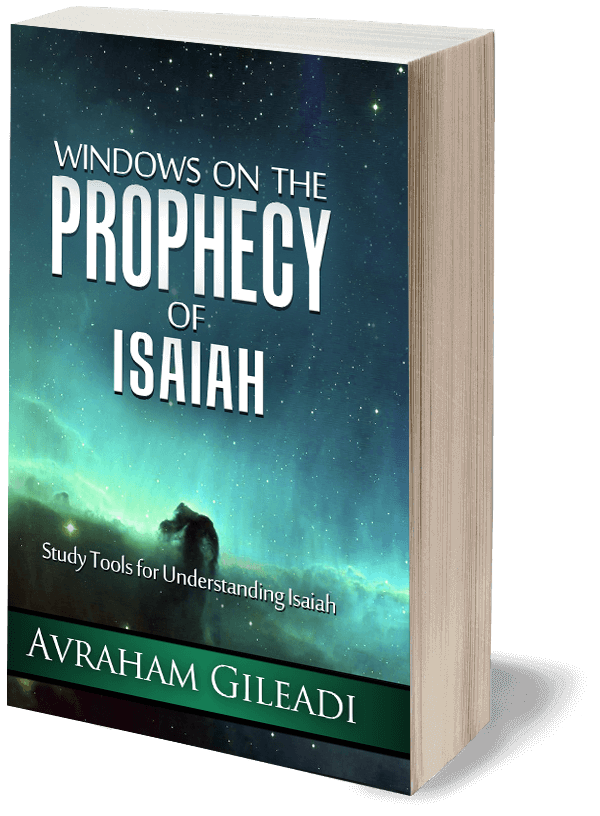God Showed Isaiah the End of the World From the Beginning
You might wonder how the most quoted prophet in the Bible, who lived about 700 B.C., could “foretell the end from the beginning, from ancient times things not yet done” (Isaiah 46:10), and then write it under the guise of events of his day and encode it for endtime humanity to unravel:
Isaiah 44:7
Who predicts what happens as do I,
and is the equal of me
in appointing a people from of old as types,
foretelling things to come?
God showed Isaiah what would occur at the end of the world and how Israel’s ancient history would typify it. The “end,” in effect, was contained in the “beginning”—in the events of Isaiah’s day or soon thereafter that he saw would repeat themselves as part of an endtime scenario.
Having seen the end of the world in a great cosmic vision, Isaiah wrote selectively in such a way as to capture his own day and the endtime in a single prophecy. Academia’s practice of getting mired in historical minutia or squabbling over historical periods, therefore, isn’t constructive:
Isaiah 43:18–19
Never mind the prophecies of bygone events;
do not dwell on things of the past.
See, I do a new thing; it is now springing up.
Surely, you are aware of it:
Isaiah’s talent as a poet augmented his visionary experiences as he transformed ancient Near Eastern literary patterns to convey his prophetic message. Layering his writings with word links, keywords, codenames, and types, he created a literary masterpiece that prefigured the future.
Ancient events turned into an allegory of the endtime, and endtime events followed the patterns of the past. Ancient persons and nations foreshadowed endtime ones, and endtime persons and nations did what their counterparts did. Their original names would now serve as codenames.
Thirty archetypal events—chaos, creation, Paradise, Sodom and Gomorrah, bondage, Passover, exodus out of bondage, wandering in the wilderness, conquest of the land, inheritance of the land, rebuilding the temple, and so forth—would repeat themselves in an endtime scenario:
Ecclesiastes 1:9–10
The thing that has been, it is what shall be,
and that which has been done is what shall be done
—there is nothing new under the sun.
Is there anything of which it may be said, “See, this is new”?
It has been already in ancient times that were before us.
A great war to end all wars follows the pattern of Assyria’s conquest of the ancient world that occurred in Isaiah’s day. When his endtime people rebel against him, God empowers an alliance of foreign nations to punish them for their transgressions and to destroy a world steeped in sin:
Isaiah 10:5–7
Hail the Assyrian, the rod of my anger!
He is a staff—my wrath in their hand.
I will commission him against a godless nation,
appoint him over the people
[deserving] of my vengeance,
to pillage for plunder, to spoliate for spoil,
to tread underfoot like mud in the streets.
Nevertheless, it shall not seem so to him;
this shall not be what he has in mind.
His purpose shall be to annihilate
and to exterminate nations not a few.
Isaiah 13:4–5
Hark! A tumult on the mountains,
as of a vast multitude.
Hark! An uproar among kingdoms,
as of nations assembling:
Jehovah of Hosts is marshaling an army for war.
They come from a distant land beyond the horizon—
Jehovah and the instruments of his wrath—
to cause destruction throughout the earth.
Even as endtime desolations run their course, Israel’s God empowers special servants to deliver his elect people from destruction. Spiritual kings and queens gather them to places of safety in a new exodus out of “Babylon” and prepare them for Jehovah’s coming to reign on the earth:
Isaiah 49:22–23
Thus says my Lord Jehovah:
I will lift up my hand to the Gentiles,
raise my ensign to the peoples;
and they will bring your sons in their bosoms
and carry your daughters on their shoulders.
Kings shall be your foster fathers,
queens your nursing mothers.

Recommended Reading:
Avraham Gileadi, Apocalyptic Commentary of the Book of Isaiah. A verse-by-verse analysis of Isaiah’s endtime prophecy for Judeo-Christian readers that opens up Isaiah’s message written for our day. Hebraeus Press, 2013: 432 pages. Softcover $29.95; E-Book $9.95.

Recommended Listening:
Avraham Gileadi, Windows on the Prophecy of Isaiah: Study Tools for Understanding Isaiah. Many examples of analyzing or “searching” Isaiah’s words for Judeo-Christian readers and the tools needed to do one’s own research and investigation. Hebraeus Press, 2015: 322 pages. Softcover $25.95; E-Book $8.95; MP3 download $9.95.

